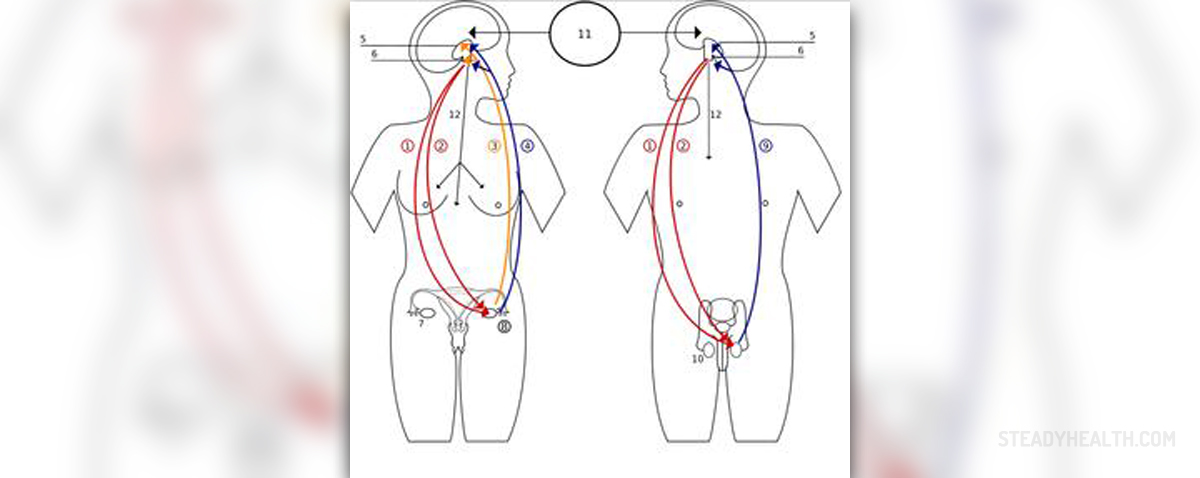
Puberty is a known to be a part of transition from being a child to being a young man or a young woman. Naturally, it is the time of numerous physical and hormonal changes which take place in order to enable this metamorphosis that all people go through.
If puberty, which commonly appears during adolescence, appears earlier in a child, he/she might be undergoing a process of early puberty, also known as precocious puberty. This early onset of puberty can present a problem for many children, both on the emotional and on the health basis.
Why Early Puberty Happens?
Normally, children undergo the process of puberty when they are about 7 to 8 years old, when it comes to girls and 9 years old if they are boys. However, on average, boys enter puberty when they are 12 years old while, for girls, this stage of life usually comes during the age of 10.
As it was mentioned above, precocious puberty is not a healthy, nor a natural appearance. In general, puberty is triggered by the hypothalamus, being the part of our brain in charge of the pituitary gland. Basically, this part of the brain tells the gland to produce specific hormones necessary for stimulating the ovaries or the testicles. Once stimulated, these parts of the reproductive system start making sex hormones.
Thus, these changes are biologically set to happen once the individual is getting physically prepared for being sexually active. However, when these changes appear too fast, some health problem related to the brain, like a tumor, for example, may be the culprit.
Alternatively, a brain injury or a brain infection may lead to precocious puberty too, along with ovary health issues or dysfunctional thyroid glands. However, these cases are quite rare.
As far as girls are concerned, once their puberty takes off before its time, there are usually no explanations for this phenomenon since no illnesses or similar occurrences are involved. On the other hand, boys experience this much less often and are therefore more likely to suffer from illnesses triggering these abrupt and early changes. In fact, 5% of boys inherit the precocious puberty from their own fathers or maternal grandfathers. Yet, when it comes to girls, only 1% of all girls are likely to inherit this early puberty from their family.
How Is It Classified?
Early puberty manifests through early pubic hair, breast growth or early development of genitals. However, there are several different types of precocious puberty, depending on their underlying causes.
Thus, if this condition is triggered by the pituitary gland or the hypothalamus, it it classified as central. So, the central cause of precocious puberty involves damage to the inhibitory system of the brain because of infection, trauma or irradiation, hypothalamic hamartoma which creates the hormones in question or the McCune-Albright syndrome.
Also, if the early puberty is triggered by Langerhans cell histiocytosis, the cause is known to be central as well.
Additionally, this type of precocious puberty can be triggered by intracranial neoplasms, infections, traumas, Angelman sydrome or hydrocephalus, along with several types of growth and brain disorders.Due to the changes that a child undergoes while in the stage of early puberty, he/she is likely to be fertile or to conceive while very young. The earliest case of pregnancy recorded was that of Lina Medina, who gave birth while 5 being years old.
Alternatively, the causes of precocious puberty can also be classified as peripheral, if the causes are gonadal or adrenal tumors or tumors in the germ cell. Also, congenital adrenal hyperplasia or the above mentioned McCune-Albright syndrome can lead to this type of early puberty.
Finally, peripheral reasons behind precocious puberty can also be environmental exogenous hormones or treatments of some other health conditions.
Statistically, according to the information obtained from many scientific resources, children who are not physically active, especially if they are obese, are more prone to developing early puberty, reaching physical maturity earlier. In fact, overweight girls have 80% chances of developing breasts before their peers of regular weight. Moreover, they are likely to experience their first menstrual period before the age of 12. Commonly, the average time for a girl to have her first period is when she is around 12.7 years of age. Also, girls of African descent are more likely to enter puberty earlier, both due to genetic and unknown factors.
However, the increasing number of obese children in the US, related to modern times and the fast food nutritional trends, is a factor connected with early puberty most of the times.
All in all, precocious puberty is a phenomenon manifesting through children entering puberty at an age earlier than expected. This occurrence can take place due to many factors, including genetics and various underlying health problems. Depending on the type of the underlying cause, the precocious puberty can be either central or peripheral.

















Your thoughts on this
Loading...